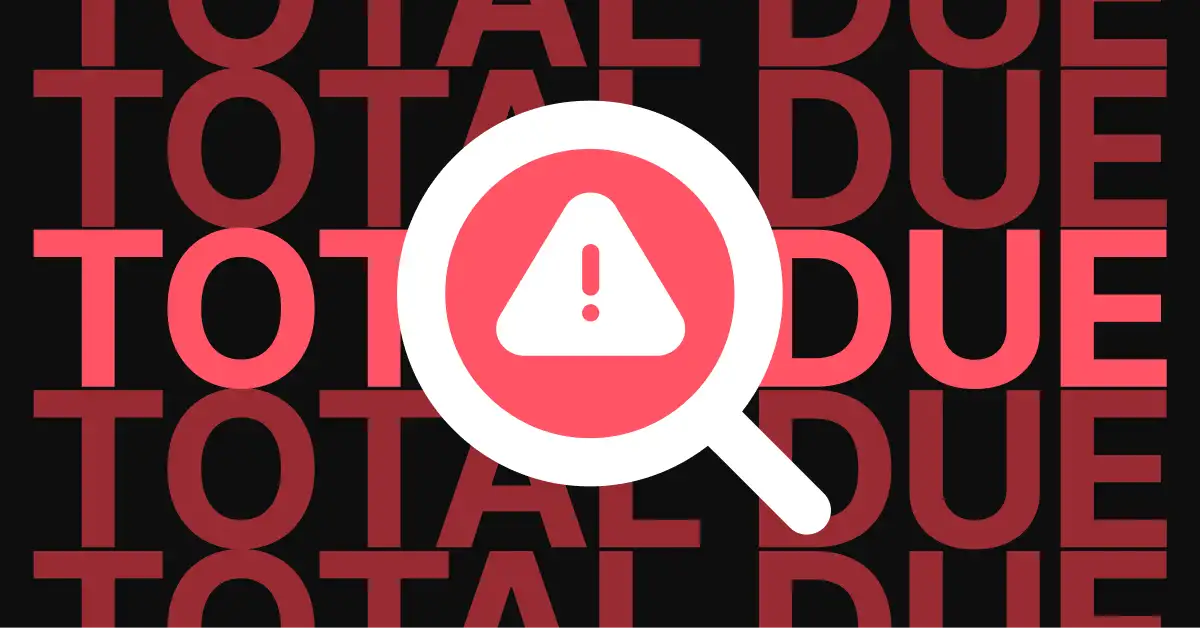"In our experience, OpenEnvoy is a security product as much as a financial one. Its ability to detect discrepancies in vendor information is exactly the kind of protection companies need," said the Infosec lead at a customer after learning about our fraud checks.
His company had been recently targeted by a fraudster who created a squatting domain similar to one of their existing vendors. The fraudster submitted a nearly identical invoice for a legitimate project but requested payment to a different bank.
Invoice fraud, such as this, is a growing risk for businesses, especially as AP processes become more complex. Fraudsters exploit weak points in AP systems with tactics like fake vendors, invoice manipulation, and payment redirection schemes. According to a 2023 Association of Certified Fraud Examiners report, companies lose an estimated 5% of their revenue to fraud annually, much of it from fake or altered invoices.
What is Invoice Fraud?
Invoice fraud occurs when fraudulent invoices are submitted to receive payments for goods or services that were never provided, or at inflated prices. Common types of invoice fraud include:
- Fake Vendor Invoices: Non-existent or impersonated vendors
- Invoice Redirection Scams: Changing payment details to unauthorized accounts
- Duplicate Invoices: Submitting the same invoice multiple times for payment
How OpenEnvoy Detects Invoice Fraud
OpenEnvoy was built with fraud prevention at its core. Here’s how it works:
- Real-Time Invoice Matching
OpenEnvoy automatically matches each incoming invoice with the associated purchase order (PO) and vendor details. This ensures the invoice is tied to a legitimate transaction. If there are discrepancies—like mismatched amounts, unauthorized vendors, or missing POs—the invoice is flagged for further review. - Vendor Verification
OpenEnvoy cross-references incoming invoices with your vendor master. If an unauthorized vendor or a vendor that doesn’t exist in your system tries to send an invoice, OpenEnvoy triggers an alert. This helps stop fake vendor scams before they can compromise your AP process. - Banking Detail Matching
One of the most common invoice fraud tactics involves altering banking details on a legitimate-looking invoice. OpenEnvoy’s system automatically checks the bank details on the invoice against what’s stored in your vendor master. If there’s a mismatch, the invoice is flagged for manual review, preventing payments from being diverted to unauthorized accounts. - Pattern Recognition & AI Insights
OpenEnvoy’s AI-driven fraud detection tools identify abnormal patterns in invoice data, such as sudden spikes in submissions or frequent changes to payment details. By recognizing these suspicious patterns, OpenEnvoy helps prevent fraud in real-time and predicts potential future threats.
Why You Need to Protect Your AP Process
Without proper safeguards, your AP process becomes an easy target for fraudsters. Invoice fraud doesn’t just lead to financial losses—it also damages vendor relationships, disrupts operations, and tarnishes your company’s reputation.
The sophistication of modern fraud schemes means manual methods of processing invoices are no longer sufficient. Relying on employees to catch fraudulent invoices among hundreds of legitimate ones is risky and inefficient.
By implementing OpenEnvoy, businesses can automate their AP processes while ensuring they are protected from fraud. Our platform’s advanced fraud detection tools safeguard your company from potential losses, offering peace of mind.




